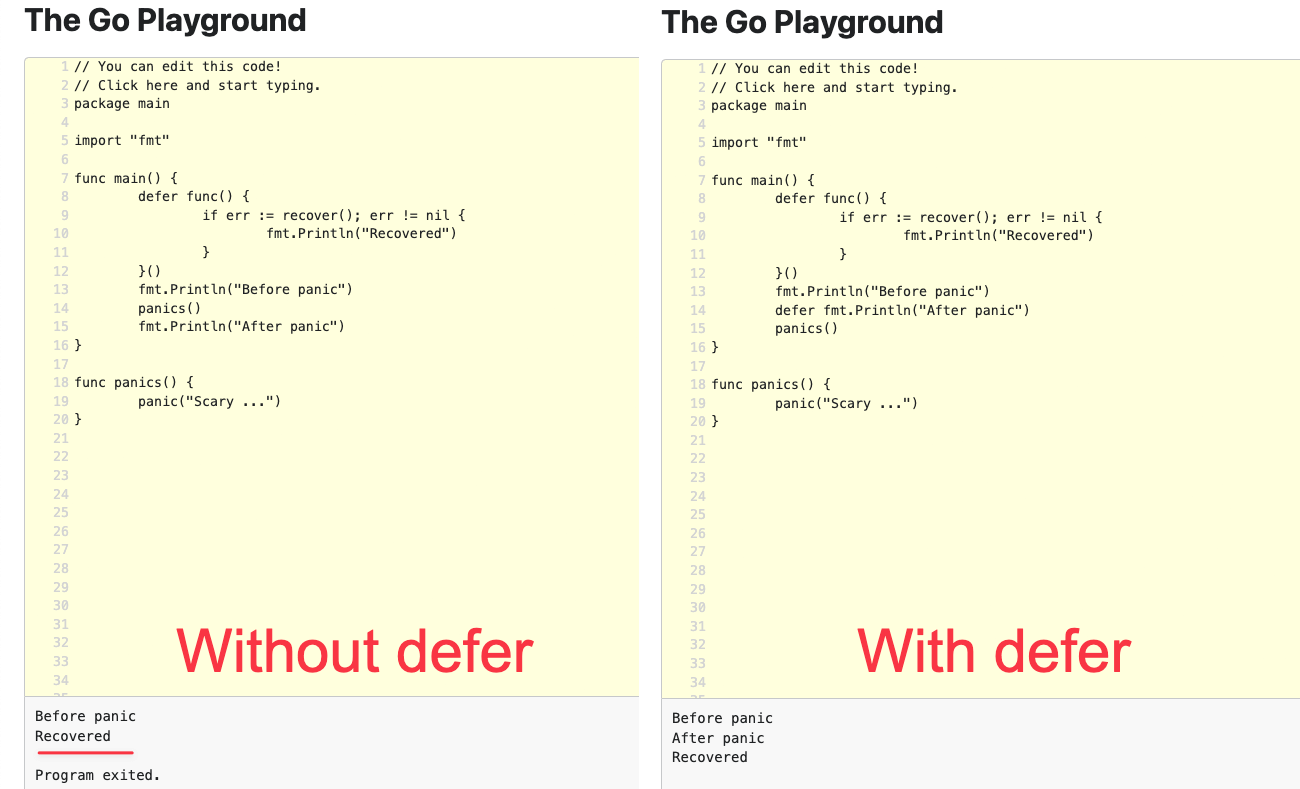Defer your mutex Unlocks
Want to connect? Find me on LinkedIn or the Contact page.
A few weeks ago we had an incident where our RabbitMQ was blocked and no new messages were processed. Restarting the service temporarily resolved the issue, but the underlying problem was still there. It was caused by a mutex that stayed locked after a panic. Even though we did recover from the panic - the mutex remained locked.
We had a function that was surrounded by Mutex Lock/Unlock as it was writing to a map that was accessed concurrently. The function was quite simple and it wasn't supposed to panic, but it did. Luckily - all the places are covered with panic handlers (recover()). Even though the panic was properly recovered from, we noticed that the issue with the queue being blocked started happening after that particular panic.
A quick inspection at that particular code led to a realization that the reason behind this was that the mutex unlock wasn't deferred. What's the catch?
defer func() {
if err := recover(); err != nil {
fmt.Println("Recovered")
}
}()
mutex.Lock()
functionCallThatPanics()
mutex.Unlock()The problem with above function is that in case it panics (and for us it did), the m.Unlock() was never executed. For us it was a bit more complex as that function call was done in a loop, so it had to be extracted, as defer calls aren't suited for loops.
Apart from fixing the actual panic, the issue was resolved by adding a defer call to mutex.Unlock().
defer func() {
if err := recover(); err != nil {
fmt.Println("Recovered")
}
}()
m.Lock()
defer m.Unlock()
functionCallThatPanics()This way, the mutex is unlocked properly even in case of a panic. The image below demonstrates the difference using fmt.Println().
